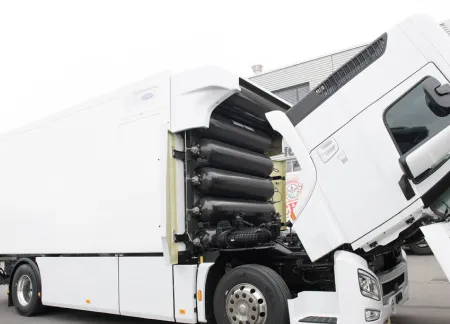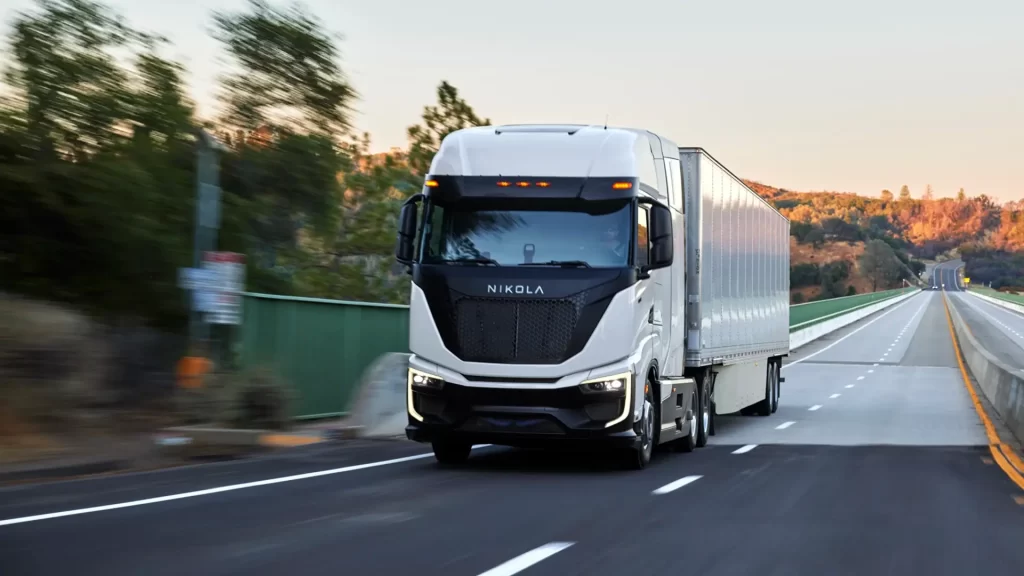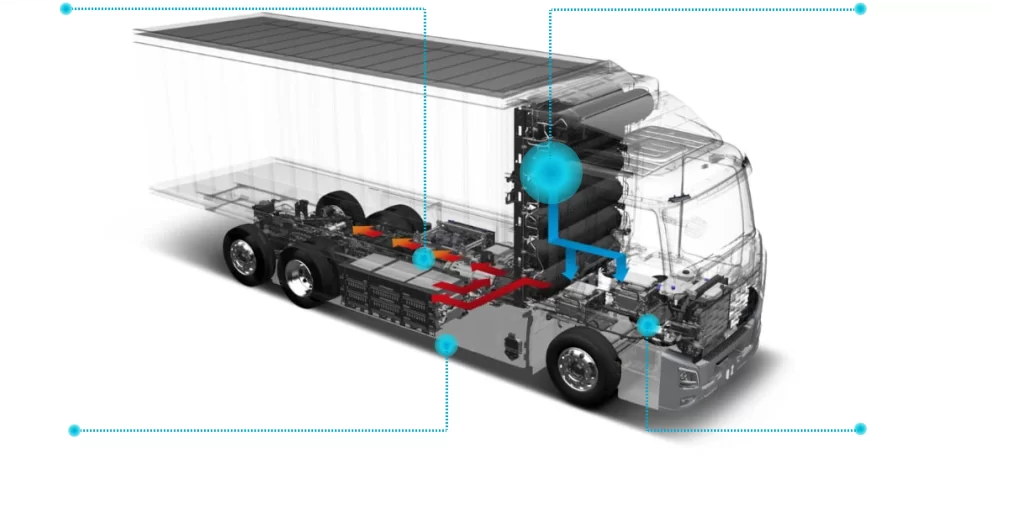The Feds Are Leading the Charge for Hydrogen-Powered Trucks
Fuel cell technology promises to be the most feasible solution to make long-distance truck driving more sustainable. Yet, despite the endless calls for decarbonization, hydrogen-powered electric trucks are hardly visible on American roads. Thankfully, freight transportation is about to become greener.

New Hydrogen Hubs
The Biden administration plans to fund the construction of seven so-called “clean hydrogen hubs” nationwide. The targeted regions will be the Pacific Northwest, California, the Gulf Coast, the heartland, the Appalachians, the Midwest and the mid-Atlantic.
The federal government intends to spend $7 billion in the coming years to finance various state government, research organization and private company projects. The aim is to make low-cost hydrogen commercially viable and reduce the greenhouse gas emissions of hard-to-decarbonize sectors, including heavy transport.
Although it will take time before these clean-energy hubs see the light of day, it proves that long-haulfreight transportation—a significant global carbon polluter—has a sustainable future. It will also reduce the risk of trucking companies contemplating switching to fuel-cell vehicles and encourage eco-warriors to consider truck driving an environmentally ethical profession.
Increasing Vehicle Production
Numerous manufacturers have received hundreds of hydrogen truck orders before the U.S. Department of Energy announced the federal government’s plan to build clean hydrogen hubs. Therefore, more fuel cell trucks will hum on American roads soon.

Using Toyota’s fuel cell technology, Kenworth plans to begin full-scale production of Class 8 T680 hydrogen electric vehicles in 2025, and the first of these zero-emission on-highway trucks will hit the road in 2024. Hyundai’s Xcient fuel cell semi, which is available in South Korea, New Zealand, Israel, Germany and Switzerland, will enter the North American market soon. Nikola also has started production of its hydrogen fuel cell Class 8 EV. The big guys in the truck market, Daimler/Freightliner and Volvo, have both demonstrated fuel cell trucks and have said they intend to have them in production by the end of the decade. Taking a slightly different path, Cummins has developed an internal combustion engine that will run on hydrogen and power a big rig. It’s not electric so not zero tailpipe emissions, but it’s super clean and could be in production quicker than the fuel cell option, which Cummins is also explorng.
As more truck manufacturers set their sights on the U.S., the country is bound to increase its stock of hydrogen fuel cell trucks and narrow its gap with China and other nations.

Broadening the H2 Fueling Station Network
As of 2022, the U.S. only had 165 hydrogen fueling stations—most of them were in California and designed for light-duty hydrogen vehicles. This uneven concentration shows that the Golden State is head and shoulders above others regarding hydrogen infrastructure. This network will likely rapidly expand in the near future.
The number of large hydrogen fueling stations may increase to 4,300 by 2030. This project aligns with the rising future demand for hydrogen in the U.S. and the Biden administration’s target to cleanly produce 10 million metric tons of energy every year.
More Hydrogen Trucks Soon
The arrival of hydrogen fuel cell trucks is long overdue, but it’s finally happening. The country’s nationwide hydrogen infrastructure may still be more theoretical than tangible, but the dream of an extensive fueling station network—thanks to the federal government’s initiative—is more realistic than ever.
